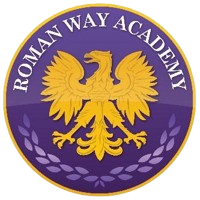Science
How we teach, learn and assess Science at Roman Way Academy
At Roman Way Academy, we teach discreet science lessons that are planned using a progressive knowledge and skills-based curriculum.
Children will develop their ‘Working Scientifically’ skills throughout each unit. Children are taught the skills of scientific enquiry, observation and data handling, and will be able to explain what is occurring, predict how things will behave and analyse causes.
All pupils are taught essential aspects of the knowledge, methods, processes and uses of science and are encouraged to recognise the power of rational explanation and develop a sense of excitement and curiosity about natural phenomena. They are also encouraged to relate science to everyday life, developing an interest and an understanding of the world around them.
The children will also develop a strong knowledge of the scientific community and its developments through studies of famous scientists and famous discoveries.
Each year group will also develop an understanding of a wide breath of vocabulary linking to their units of work.
At Roman Way science is taught in ways that are imaginative, purposeful, well managed and enjoyable. Children are encouraged and supported to ask questions about the world and use scientific processes to try to answer them. Science is taught weekly as a specific subject, but there are also cross-curricular links with topic work and the children are encouraged to make links between the subjects.
Prior knowledge is harvested at the beginning of each unit and used to inform planning. Science teaching in the foundation stage falls within the Early Years Outcome of ‘Understanding the world’ and is taught through adult and child-led activities. It involves guiding children to make sense of their physical world and their community through opportunities to explore, observe and find out about people, places, technology and the environment.
Key stage 1 and key stage 2 teachers' planning is based on the National Curriculum Programmes of study. The teachers ensure that they provide a broad and balanced curriculum, which includes teaching the children the ‘working scientifically’ skills.
Science is assessed in a variety of ways. When planning, teachers use the progressive skills ladder as well as the long-term overview to keep coverage consistent. Children will begin each topic with a knowledge harvest of key vocabulary to demonstrate progression during the topic. They will then review this learning halfway through the topic. Teachers will start lessons with a retrieval question to assess memory of prior learning as well as an opportunity to link the previous learning in long-term memory to the new knowledge acquired in the upcoming lesson. Science wheels with working scientific targets are in each classroom for teachers to use to ensure full coverage is achieved.
Children will also take part in a final assessment of their topic through a double page spread showing the knowledge they have gained in each topic.
In February 2023, Roman Way held a Science exhibition for Parents and Carers at the end of Science Week to celebrate their Science learning in school. Children in key stage 1 and key stage 2 were involved in research and created posters for the theme ‘Journeys’ that were displayed at the exhibition.
Useful links for home:
BBC Bitesize KS1 BBC Bitesize KS2 BBC Teach KS1 Wonderseekers
